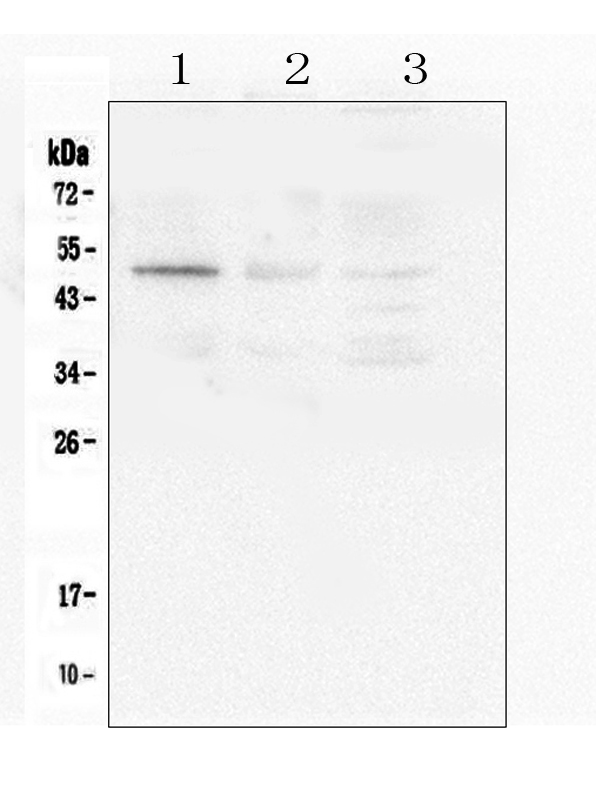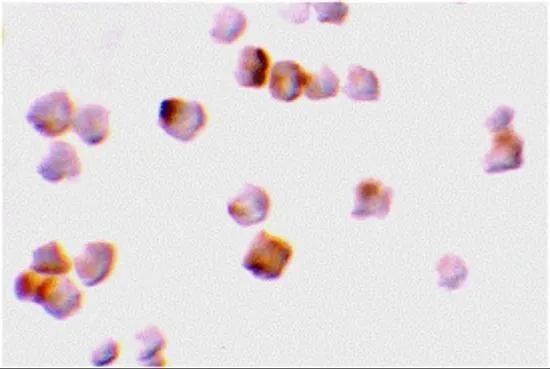![WB analysis of HL-60 cell lysate using GTX13870 Caspase 2 antibody [18E809.3]. Dilution : 1:1000 Loading : 20μg WB analysis of HL-60 cell lysate using GTX13870 Caspase 2 antibody [18E809.3]. Dilution : 1:1000 Loading : 20μg](https://www.genetex.com/upload/website/prouct_img/normal/GTX13870/GTX13870_1045_WB_w_23060620_979.webp)
WB analysis of HL-60 cell lysate using GTX13870 Caspase 2 antibody [18E809.3]. Dilution : 1:1000 Loading : 20μg
Caspase 2 antibody [18E809.3]
GTX13870
ApplicationsWestern Blot
Product group Antibodies
ReactivityHuman
TargetCASP2
Overview
- SupplierGeneTex
- Product NameCaspase 2 antibody [18E809.3]
- Delivery Days Customer9
- Application Supplier NoteWB: 1:500 - 1:1000. *Optimal dilutions/concentrations should be determined by the researcher.Not tested in other applications.
- ApplicationsWestern Blot
- CertificationResearch Use Only
- ClonalityMonoclonal
- Clone ID18E809.3
- ConjugateUnconjugated
- Gene ID835
- Target nameCASP2
- Target descriptioncaspase 2
- Target synonymsCASP-2, ICH1, MRT80, NEDD-2, NEDD2, PPP1R57, caspase-2, caspase 2 apoptosis-related cysteine peptidase, neural precursor cell expressed developmentally down-regulated protein 2, protease ICH-1, protein phosphatase 1, regulatory subunit 57
- HostMouse
- IsotypeIgM
- Protein IDP42575
- Protein NameCaspase-2
- Scientific DescriptionThis gene encodes a protein which is a member of the cysteine-aspartic acid protease (caspase) family. Sequential activation of caspases plays a central role in the execution-phase of cell apoptosis. Caspases exist as inactive proenzymes which undergo proteolytic processing at conserved aspartic residues to produce two subunits, large and small, that dimerize to form the active enzyme. The proteolytic cleavage of this protein is induced by a variety of apoptotic stimuli. Alternative splicing of this gene results in multiple transcript variants that encode different isoforms. [provided by RefSeq]
- ReactivityHuman
- Storage Instruction-20°C or -80°C,2°C to 8°C
- UNSPSC41116161






![WB analysis of untreated or etoposide-treated Jurkat cell lysate using GTX18029 Caspase 2 antibody [4i13(C2)].](https://www.genetex.com/upload/website/prouct_img/normal/GTX18029/GTX18029_20191203_WB_61_w_23060620_697.webp)
